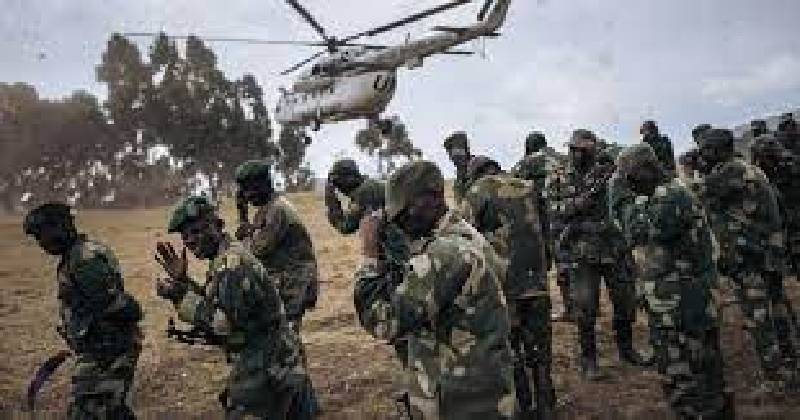
The government of the Democratic Republic of Congo stated on Monday that militiamen killed roughly 20 people during an attack on displaced refugees in the northeastern region of the country.
According to Jules Ngongo, a spokesperson for Ituri’s military administration, fighters from the CODECO militia stormed the community of Drodro on Sunday night.
They killed 12 individuals, six of whom were youngsters, Ngongo stated. The national government’s spokesperson, Patrick Muyaya, later reported on Twitter that the dead toll was about 20.
According to the United Nations, CODECO has killed hundreds of civilians in Ituri province’s Djugu area since 2017 and forced thousands of civilians to evacuate their homes.
CODECO’s fighters are mostly from the Lendu farming community, which has been at odds with Hema herders for a long time.
‘Their goal was to target the displaced inhabitants in Drodro,’ Ngongo explained.
Others asserted that the death toll was much greater.
A priest and coordinator for the Catholic charity Caritas in Ituri, Ngabu Lidja Chrysante, said that his colleagues on the ground had seen the bodies of 35 persons slain in the attack, which also targeted the local church.
The Kivu Security Tracker, which tracks violence in the Congo, reported 29 deaths. It had previously reported 107 deaths, but claimed that the information was incorrect.
According to Mathias Gilman, a spokesman for the United Nations’ peacekeeping force in Congo, at least 16,000 civilians fleeing the violence took refuge in a nearby facility guarded by peacekeepers.
Patrick Basa, a CODECO spokesman, denied that the group had killed civilians. He told Reuters that its forces had fought a Hema militia in Drodro, but that people had already evacuated the region.
Between 1999 and 2007, a civil war in eastern Congo erupted between the Lendu and the Hema, resulting in an estimated 50,000 deaths.
Since May, when the government declared a state of siege in response to persistent violence, military officers have been in charge of Ituri and neighbouring North Kivu provinces, but the killings have not stopped.

Post Your Comments